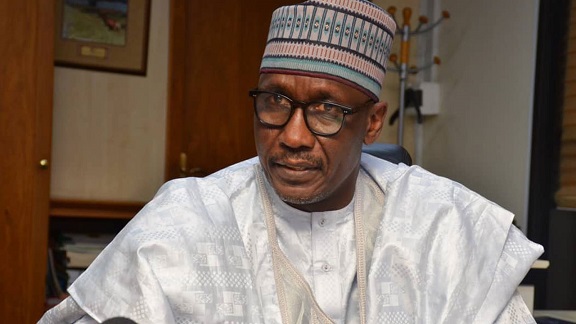The government subsidised Premium Motor Spirit, often known as gasoline, with N1.593 trillion between January and June 2022, according to the most recent data on the subject seen in Abuja on Monday.

Additionally, it was learned that over the course of six months, the Nigerian National Petroleum Company Limited invested N54.66 billion in the repair of refineries.

According to data collected from the NNPCL’s presentation at the July 2022 meeting of the Federation Accounts Allocation Committee, gasoline subsidies began in June. Last month, the corporation changed from being a publicly traded oil company to becoming a business.
In July, it also made it apparent that the Federal Government, rather than the State Government, was now in charge of providing gasoline subsidies.
The fuel subsidy or under-recovery/value gap, as reported by NNPCL, increased to N1.593 trillion in the first half of 2022, according to an analysis of the presentation made in July to FAAC.
Figures from the study showed that N210.38 billion, N219.78 billion, and N245.77 billion, respectively, were spent as subsidies on the good in January, February, and March.
In April, May, and June, respectively, N271.59bn, N327.1bn, and N319.18bn were all spent on subsidies.
The oil business spent N9.11 billion in January on refinery renovation, but didn’t spend any money in February or March. Another N9.11 billion was spent on the facility.
It spent N9.11 billion on refinery rehabilitation in each of the months of April and May 2022, and N18.22 billion on the plant in June.
The Port Harcourt refinery’s restoration is expected to be completed by April 2023, according to Chief Timipre Sylva, Minister of State for Petroleum Resources, who also predicted that the facility will process 60,000 barrels of crude by the beginning of next year.
The Port Harcourt Refining Company’s $1.5 billion renovation scheme was officially agreed upon by the NNPC and Tecnimont SPA in April 2021. The plant was expected to be finished in 18 months.
According to the company’s July FAAC presentation, the gross domestic crude oil and gas income for the month of June 2022 was N391.529 billion.
In contrast to the outstanding balance carried forward, which was N1.01 trillion, it was noted that the value shortfall on the importation of PMS recovered from June 2022 proceeds was N319.176 billion.
“The estimated value shortfall of N1,490,413,402,007.66 (consisting arrears of N479,688,823,026.00 plus estimated June 2022 value shortfall of N1,010,724,578,981.66) is to be recovered from July 2022 proceed due for sharing at the August 2022 FAAC meeting,” the company stated.
When asked how the oil company would manage fuel subsidies given that it was a for-profit company, Kyari responded that it was not NNPC’s responsibility.
The CEO had stated, “NNPC is not responsible for subsidies. The state decides on subsidies, and every country in the globe has a different perspective on them. In some nations, a petroleum tax is added to the current market price of these goods.
“So, when decisions are to be made in some jurisdictions, they will reduce the level of taxation. That also is another form of subsidy. In some countries, you have zero taxation but you will pay the market price for the commodity. That also in a way, in fiscal system, looks at it from a subsidy point of view.
“In very many countries, a leader can decide that I don’t even want my countrymen to buy it at the market price. I’m ready to reduce that price for them so that they can buy.”



















